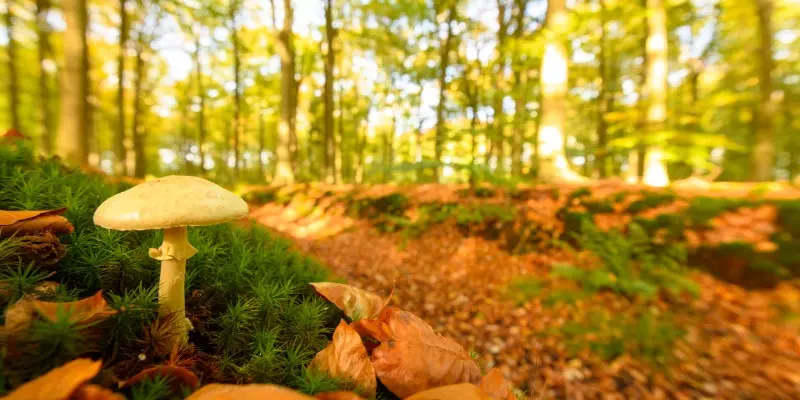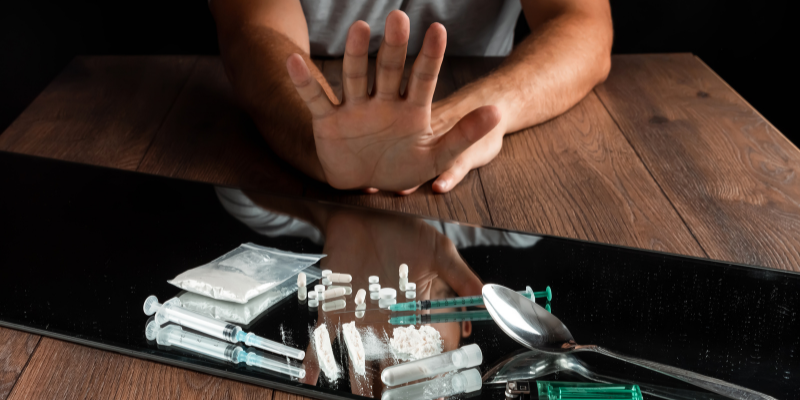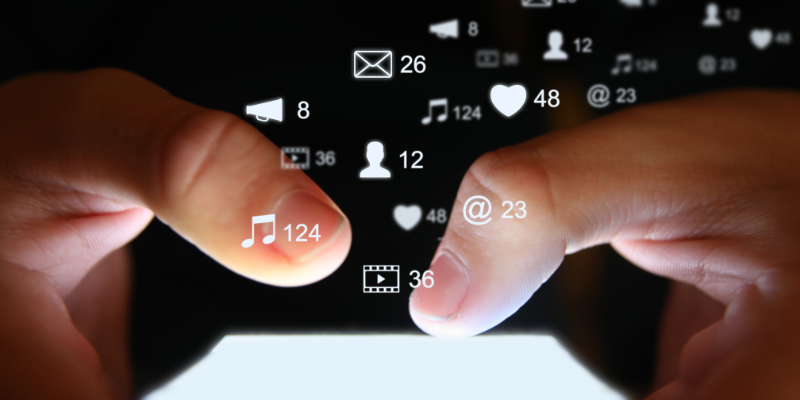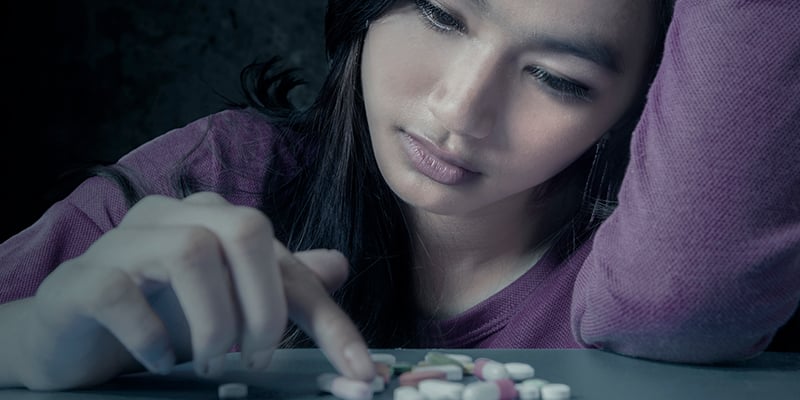
The search for effective ways to treat depression and other mental health conditions is expanding beyond typical pharmaceuticals. In particular, psychedelics are making waves as potential therapies for psychiatric disorders.
The hallucinogen ketamine made headline news in 2019 when it earned FDA approval as new drug therapy for depression. Another hallucinogen, psilocybin (the psychoactive compound in magic mushrooms), was recently decriminalized in Denver and has also been gaining favor as a new approach for treatment-resistant depression and other mental health conditions.
But is taking a psychedelic trip on magic mushrooms safe for people with psychiatric issues?
What is Psilocybin?
Psilocybin is a natural hallucinogen that distorts perception and can cause profound visual and auditory hallucinations. People can have very different experiences form ingesting magic mushrooms.
Psychedelic effects can include:
- Seeing colors more vividly
- Feeling like time has slowed down
- Thinking unusual thoughts
- Seeing objects that appear to be moving
- Feelings of euphoria
Not everybody has such a magical experience. Some people have decidedly unpleasant reactions to the substance, including:
- Nausea
- Numbness
- Anxiety
- Paranoia
- Panic attacks
- Fear
- Feelings of depression
These positive or negative effects emerge about a half-hour after ingesting the substance and can last approximately 4-6 hours.
History of Psilocybin
People have been using psychoactive mushrooms for medicinal and religious purposes for thousands of years. In the 1950s, Swiss chemist Albert Hofmann, the man who gained notoriety for discovering LSD, synthesized the substance. This opened the door to clinical research using the drug as a potential therapy for a variety of psychiatric issues, including schizophrenia, autism spectrum disorders (ASD), substance abuse, obsessive compulsive disorder, and depression.
In 1970, the U.S. designated it as a Schedule I drug of the Controlled Substances Act, effectively criminalizing it and indicating that it has a high risk of abuse. This put an end to most clinical research until it resurfaced more recently.
How Do Magic Mushrooms Affect the Brain?
Scientists have long believed that psilocybin works by binding to serotonin receptors in the brain. This prevents the reuptake of serotonin, a neurotransmitter that’s involved with mood control, shifting attention, and cognitive flexibility. Antidepressants known as selective serotonin reuptake inhibitors (SSRIs) work in the same way to enhance serotonin.
A 2012 brain imaging study found that psilocybin also decreases brain activity in certain areas of the brain, including the thalamus, which is involved in the transfer of information.
“’Knocking out’ these key hubs with psilocybin appears to allow information to travel more freely in the brain, probably explaining why people’s imaginations become more vivid and animated and the world is experienced as unusual,” study author Robin Carhart-Harris told LiveScience.
Psilocybin as a Psychiatric Treatment
Some small studies suggest psilocybin may be helpful for treatment-resistant depression, obsessive compulsive disorder, addiction, cancer-related anxiety and depression, and more.
In spite of the growing body of research, a 2018 review of the existing scientific evidence claims our understanding of psilocybin’s effects is still in its infancy and suggests caution. “Progress needs to be made in explicitly understanding the cognitive and neural mechanistic process by which psilocybin works,” the authors say.
In addition, scientists have yet to determine if the use of psilocybin could have detrimental effects in the long run. We know that some pharmaceuticals prescribed to treat mental health issues can be harmful to the brain. For example, brain SPECT imaging studies have shown that some anti-anxiety drugs, such as benzodiazepines, have negative impacts on blood flow and activity in the brain.
More research on psilocybin is needed to know the lasting impacts on the brain and to establish whether it is safe on a long-term basis.
At Amen Clinics, we use brain SPECT imaging, which can reveal exposure to toxins that are negatively impacting the brain. Our brain imaging work has shown that some medications—such as benzodiazepines often prescribed for anxiety, as well as chemotherapy— have a harmful effect on the brain. We have helped many people overcome treatment-resistant depression using the least toxic, most effective therapies.
To learn more or to schedule your comprehensive evaluation, please visit us online or call 888-288-9834.





That information on magic mushrooms was very enlightening. Thanks for sharing it.
Comment by Darrel Hogy — February 17, 2020 @ 3:32 AM
hi amen, does alcohol destroy the neurons and astrocytes cells in the brain and can it be healed,
thank you gerald
Comment by gerald hogan — February 17, 2020 @ 8:34 AM
I recently read that there are people with terminal cancer who are deeply depressed and without hope, who have used hallucinogenic drugs and are no longer terrified of death. If true, it would be something I’d like to see researched.
Comment by Rebecca Gray — February 17, 2020 @ 5:59 PM
A few years ago a met someone who taught meditation. One of the things he said that I have always remembered is “An event is just an event, it is the viewers of the event that decide whether it is positive or negative.” He coached me for years, and always referred to death as “returning home;” because we are spiritual beings on a human adventure, not human being on a spiritual adventure.
It seems to me if someone is dying of cancer, they need to get their spiritual life in order. Other than masking the symptoms of death, what other benefit is there to hallucinogenic drugs? Would it be a positive experience to meet the Master Creator of the World when you are stoned?
We are all students of The Great Universal School of Life. If we do our homework life will be good to us. Are you doing your homework?
Comment by Jon Banner — February 18, 2020 @ 11:30 AM
Dr.Amen if you want to do more studies on this magic mushrooms, there is a town two hours away from Mexico City where you find this mushrooms that were used by the Mazahuas a old Mexican Culture, people from around the world come to this town. The other place that you find this mushrooms is in Siberia. I can be a volunteer, you can scan my brain while I take this mushrooms, I have taken them only once and the experience was out of this world. I have depression problems now and a speaking problem since I was a kid, so I want my brain scanner and to get it better, If you are interested, I am more than happy to help. Please let me know, I am sure, this will contribute for the good of humanity if this mushrooms have a positive effect on the brain. Greetings, Giovanni.
Comment by Giovanni — June 14, 2020 @ 6:43 PM
my
question is would microdosing be bad for people with ocd adhd ??
Comment by arjun — October 20, 2022 @ 4:16 PM
I can attest to the efficacy of psychedelics coupled with individual and group coaching/therapy as potential treatment for depression and other related illnesses. I was diagnosed with ADD and depression in 2001 at 13 years old and started on pharmaceuticals then. In 2014 I was on daily adderal xr, prozac and escitalopram and was having suicidal ideation, planning and a near-attempt. In 2016 I began a group coaching program that included individual coaching and trauma healing and in 2017 (age 29) I had my first experience with psychedelics and hallucinogens, namely kanna, similar to mdma, mesalamine, psilocybin and a small dose of ayahuasca. Since that experience I was able to successfully and slowly wean off all 3 pharmaceuticals and haven’t needed them again since including psychedelics in my self care routine, generally quarterly or twice a year. I maintain contact with my coaches (now good friends and colleagues) and still see my therapist weekly or 2x/month as maintenance. For the ADD aspect, I do well with morning coffee, strategically placed exercise, understanding my menstrual cycle and hormone fluctuations and owning my own business where I can make my own schedule, although I do find consistent motivation a challenge at times and have been looking to more effectively improve that. I’d be happy to share more with your clinic if you’d like to study more.
Comment by Lauren H. — July 10, 2023 @ 3:59 AM
Where does one find help with microdosing psylocibin? I would like to try this for OCD, trauma, depression, anxiety and insomnia issues.
Comment by Sherry — July 23, 2023 @ 11:27 AM
I had severe depression, crippling in fact for about 6 months. I’ve always had it my whole adult life here and there, but nothing as severe as this. I had lost all connection with my own identity, it was terrifying! I microdosed 0.1 -0.2 g of psilocybin, 5 days on, 2 off, with lions mane and vit b12. Within 48 hours, all my depression was vaporised! It was incredible for me. I now have a bunch in the freezer, and take only 1 dose every 3-4 months, when i feel a depression feeling creeping back in. Life changing for me. I also have severe ADD
Comment by Paul — October 30, 2023 @ 4:40 AM
excellent information!
Comment by Doug Morris — November 14, 2023 @ 2:51 PM